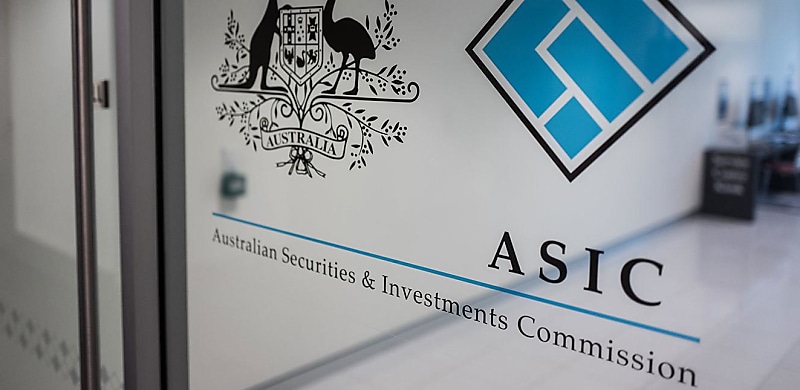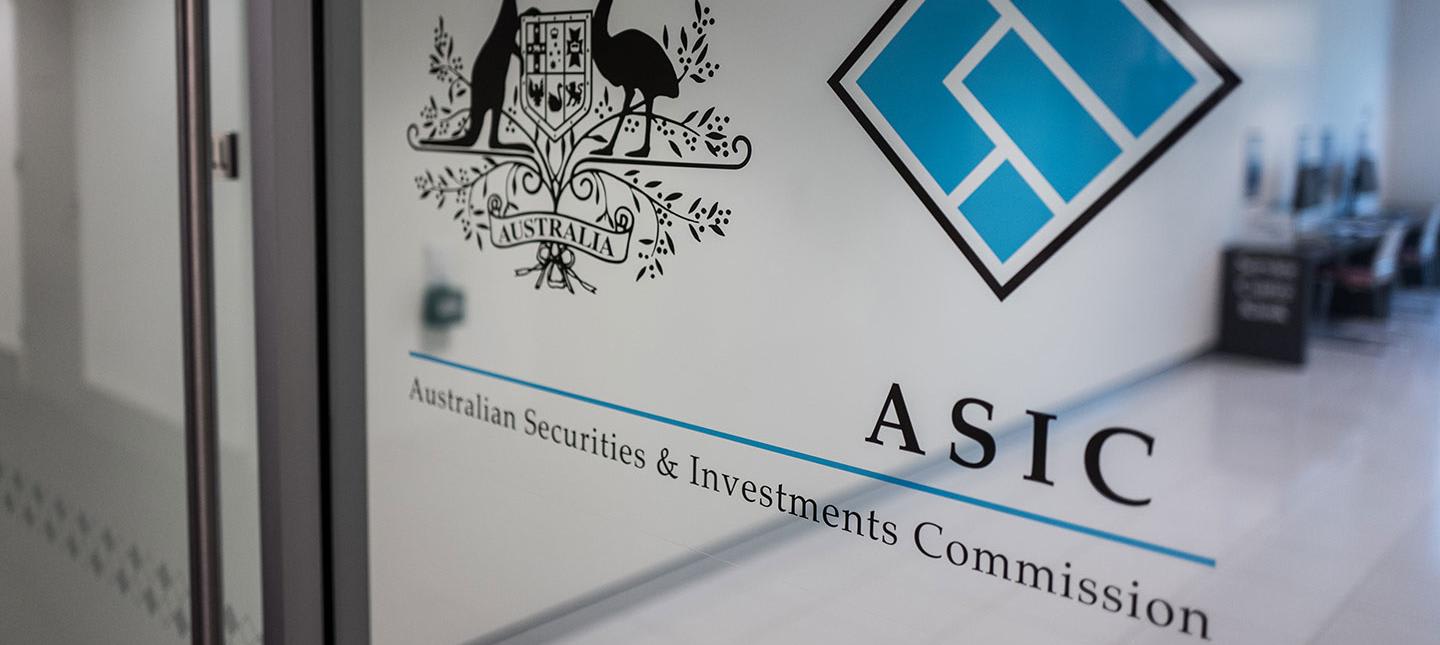
The financial services regulator “has failed” according to a Senate inquiry, with major reforms put forward to reduce its focus and overhaul its funding approach.
The Senate economic references committee has handed down its findings in relation to its two-year inquiry into the Australian Securities and Investments Commission and enforcement activities, showcasing a swathe of failings at the financial services regulator.
In the major report, the committee flagged that the regulator was overstretched, failing to meet its core function and needed overhauling.
For example, the report found that in the decade to 2021–22, ASIC received some 236,000 reports of alleged misconduct. But, despite misconduct reports often containing serious allegations of unlawful conduct, ASIC took no further action in 66 per cent of the reports received from the public in 2021–22.
Evidence to the inquiry suggested that ASIC investigates around 1 per cent of misconduct reports. The inquiry previously heard ASIC was failing to take action on misconduct at the banks, for example.
Further, it found that most statutory reports that insolvency practitioners submit to ASIC also go without investigation, with ASIC generally responding to these statutory reports with an automated, ‘no further action’ email within 40 seconds of the report being made.
While ASIC had moved to take a ‘why not litigate?’ approach following heavy criticisms during the banking royal commission, the inquiry found that “ASIC appears reluctant or unwilling to commence investigations”.
In the last three financial years, for example, ASIC commenced an average of 117 investigations per year. ASIC initiated just 75 new civil actions and 52 new criminal actions in 2021–22, for example, and only referred 41 cases to the Commonwealth Department of Prosecutions (CDPP).
By not taking a proactive approach to investigation, ASIC was accused of “let[ting] many reports of misconduct go without substantive review”.
In some cases, ASIC’s lack of early regulatory intervention prolonged the harm of misconduct to consumers and investors, the committee found, compounded by the fact that consumers and investors remain unaware of the potential risks of this misconduct due to a lack of public reporting.
“No one expects ASIC to investigate all the reports it receives, or to get it right 100 per cent of the time. However, at present, ASIC does not appear to even be trying to improve its handling of misconduct reports,” the report said.
‘It is clear ASIC has failed’: Senator Bragg
Senator Andrew Bragg, the chair of the committee, said: “We established this Inquiry in October 2022 because it was clear ASIC was failing to fulfil its sole mandate to enforce Australia’s corporate laws. Countless Australians have been hurt by ASIC’s consistent failure to investigate and deter corporate crime…
“Over the last 20 months, the Committee has uncovered the dire state of ASIC: an organisation without transparency, few prosecutions, and a litany of cultural, structural and governance issues.
“It is clear ASIC has failed.”
Indeed, the broking industry has repeatedly voiced frustrations with the light penalties imposed on those who breach their duties, with the report also saying that disqualifying individuals from managing businesses for a period of years is not adequate punishment for the losses brought about due to their misconduct.
As an example, the report said that one director was disqualified for two years, despite being involved in the failure of four companies that owed $4.9 million to over 50 creditors.
“Persistent concerns raised about ASIC’s approach to investigation and enforcement underscore the need for the change,” the report said.
11 recommendations for reform
As well as suggesting the government publicly recognise that ASIC has “comprehensively failed to fulfil its regulatory remit”, the committee put forward 10 other recommendations to improve the financial services regulator, including easing the funding burden on small businesses.
These include:
- Having government ‘strongly consider’ separating its functions between a companies regulator and a separate financial conduct authority.
- Making it a legislative requirement of ASIC (or future regulatory authorities) to investigate reports of alleged misconduct at an appropriate rate (and develop consistent standards to report to the public on the handling of these reports and provide detailed and timely information to those reporting misconduct about actions being taken).
- Inserting expectations and priorities about transparency in the Statement of Expectations.
- Making it a legislated regulatory objective to establish and maintain a high level of transparency of investigation and enforcement outcomes (supported by a searchable public register of civil or criminal outcomes arising from reports of alleged misconduct received and relevant outcomes).
- Amending the whistleblower protection provisions to include pecuniary incentives and compensation for whistleblowers who make a substantiated disclosure that results in significant public benefit.
- Adopting an enforcement approach that prioritises the litigation of all serious instances of suspected breaches of corporations law, particularly in cases where consumer losses arise, or could have potentially arisen, from such breaches.
- Having the government review a new governance structure where a chair or CEO is sole statutory appointee and accountable authority (and exploring the appropriateness of the commission structure entirely).
- Including a legislated code of conduct in the governing documents and ensuring that the chair and any other statutory appointees can be sanctioned for workplace misconduct if this code is breached.
- Unwinding the budget 24’s move to reduce the frequency of Financial Regulator Assessment Authority (FRAA) reviews from every two years to every five years (and having the FRAA undertake an inquiry into the effectiveness of the oversight mechanisms of corporate regulators).
- Reassessing the funding arrangements so that: a greater level of funding can be directly resourced with the proceeds of regulatory fines (including late fees, court fines, penalties, and infringement notices); taking “reasonable steps” to ensure levies charged on industry subsectors are reduced (commensurate with increased resourcing to the regulator through the proceeds of fines); and ensuring that regulatory authorities are accountable for the level of resourcing linked to cost-recovered activity and face obligations to rationalise surplus resourcing to reduce costs on the industry subsector participants.
Senator Bragg said: “The Committee understands the pressure of ASIC levies on small business. We have recommended lightening the load on small business by recalibrating the funding model.
“We need regulators to be responsive and transparent, but most of all to be focused on enforcement.
“These measures, if adopted, would provide Australians with the protection and confidence which is sadly absent.”
Fractures amid Senate committe
However, the deputy chair of the committee - Senator Jess Walsh - stated that she believed the report was "a missed opportunity to genuinely improve ASIC", noting that government Senators were provided "just 24 hours to review, consider, and respond to the Chair’s report before its adoption".
She said: “The Chair’s recommendations have overshot the mark and completely missed an opportunity for bipartisan support.
“There is room for improvement at ASIC, so it’s a shame sensible reforms that could be implemented immediately have been overlooked.
“The inquiry received useful evidence and suggestions from stakeholders that could have been a genuine opportunity to improve ASIC. Unfortunately, these have largely been ignored in the chair’s report, favouring a headline grab instead.”
Speaking after the release of the report, an ASIC spokesperson said: "Throughout the inquiry we have shared our strong enforcement record on behalf of Australian consumers and investors. ASIC is in court almost every day pursuing wrongdoing and in the last 12 months alone launched around 180 new investigations.
"We note the release of the Chair’s report, dissenting commentary from the Deputy Chair, and the Treasurer’s comments about it this week. ASIC will take time to consider the report.
"ASIC is already working with Treasury to act on the recommendations from the Financial Regulator Assessment Authority's review of ASIC’s effectiveness."
[Related: Senate accuses ASIC of failing to act on bank misconduct]

